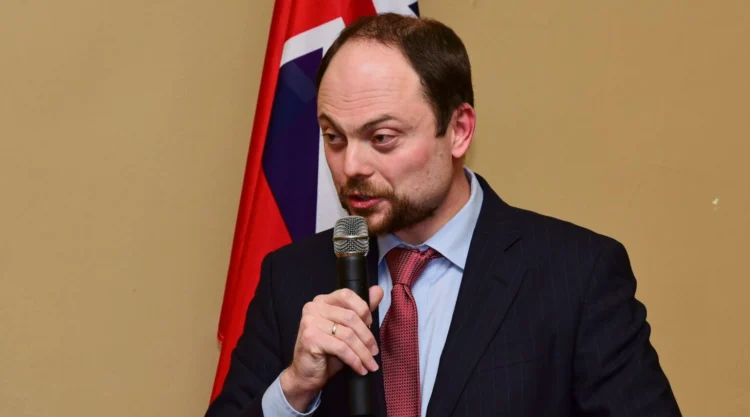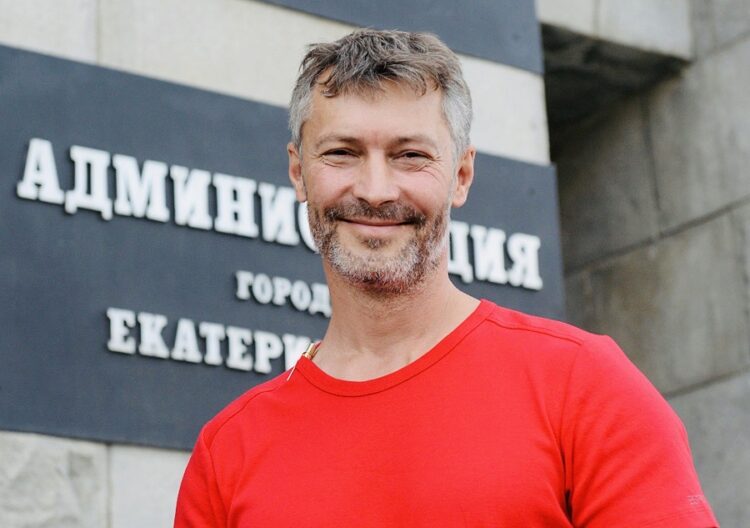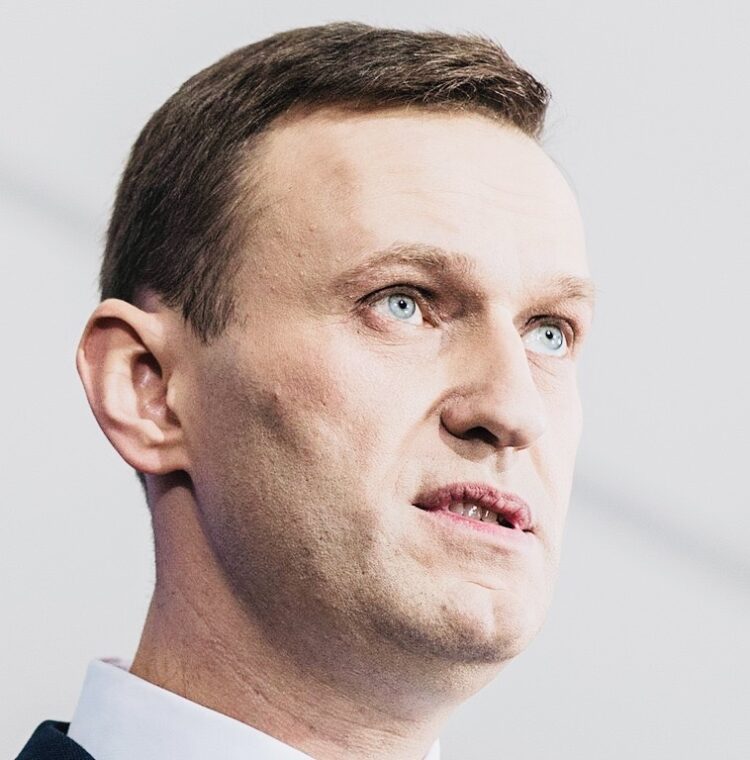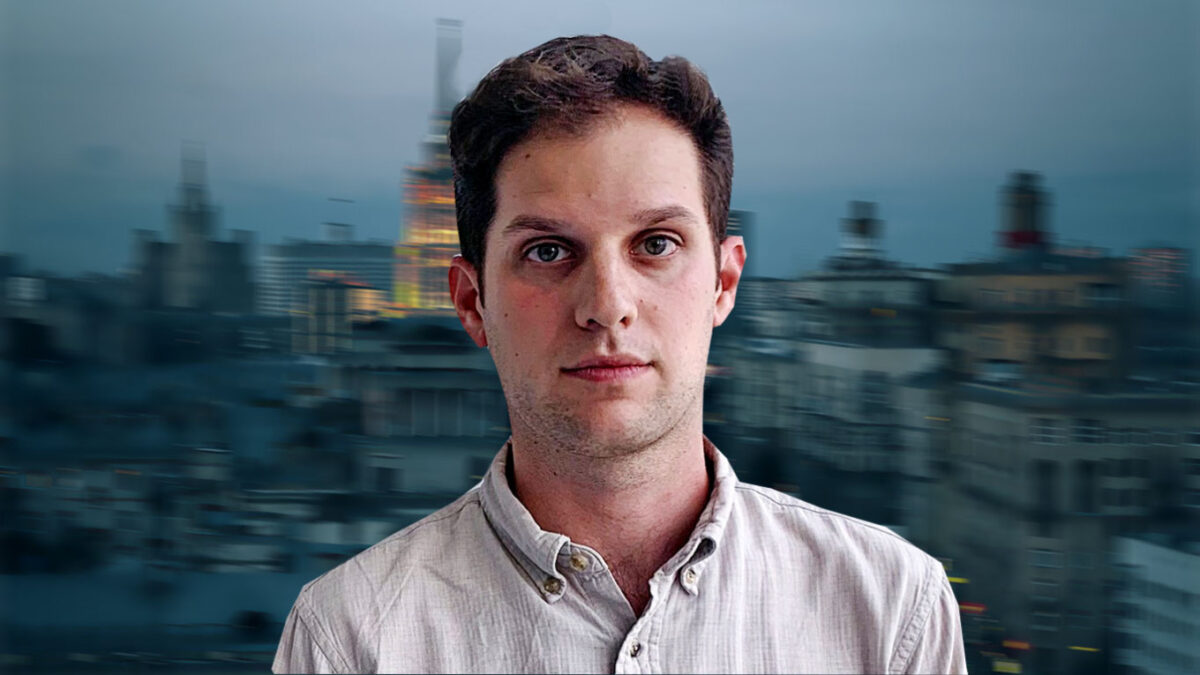Evan Gershkovich, a 31-year-old Wall Street Journal foreign correspondent in Russia, faces the horrendous prospect of spending up to 20 years in a Russian penal colony should he be convicted of espionage.
The son of Russian-Jewish immigrants living in the United States, he was detained in Yekaterinburg on March 29 while gathering material for a story. President Vladimir Putin’s spokesman claims he was caught “red-handed,” but the Russian government has not provided even a shred of evidence to support its flimsy accusation.
At a recent courtroom appearance in Moscow, his first since his detention, Gershkovich proclaimed his innocence. His employer is equally convinced he is innocent. “Evan is wrongfully detained, and the charges of espionage against him are false,” The Wall Street Journal declared. “We demand his immediate release and are doing everything in our power to secure it.”
The U.S. ambassador to Russia, Lynne Tracy, has denounced the charges against him as “baseless” and demanded his release.
On April 29, in a speech at the annual White House Association Correspondents’ dinner, U.S. President Joe Biden commended Gershkovich’s “absolute courage” and said his administration is “working every day to secure his release, looking at opportunities and tools to bring him home.”
“Our message is this,” he added. “Journalism is not a crime.”
This is precisely the point.
In detaining Gershkovich, Russia has crossed two red lines. It is the first time Moscow has levelled such a grave accusation against a foreign journalist accredited by the Russian Foreign Ministry. And it is the first time since the Cold War that a Western reporter in Russia has been charged with espionage.
“Gershkovich’s arrest and espionage charge … is a dark testimony to what freedom of expression under Vladimir Putin has become,” writes Kyle Pope in the Columbia Journalism Review.
The Gershkovich case is obviously politically inspired, representing “a new escalation in Putin’s conflict with the West,” as The New York Times succinctly put it recently.
Since its unlawful invasion of Ukraine last year, a flagrant violation of Ukraine’s territorial integrity and an egregious breach of the international order, Russia’s relations with the United States and its Western allies have deteriorated sharply. It goes without saying that Gershkovich would not have been arrested and charged with espionage had Russia’s relationship with the West been anything but normal.
Much to his personal misfortune, Gershkovich has become a pawn in the ongoing political duel between Russia and Western powers.
On April 18, as expected, a Russian judge at a closed hearing in Moscow denied Gershkovich’s appeal to be set free before the start of his trial, leaving him to languish in Moscow’s notorious Lefortovo prison.
Since the pre-trial investigation process is likely to take at least several months, a year or more may elapse before a verdict will be finally rendered. Only once his sentence is delivered will Russia consider a prisoner exchange to release him, according to reports.
Which means that Gershkovich will be unjustly incarcerated until 2024, barring a last-minute change of heart by the Kremlin.
Much as Russia may deny it, the Gershkovich affair is also a troubling sign of the Russian government’s contempt of the principles of democracy and the free flow of information.
On the very day Gershkovich was returned to his cell, a court in Moscow sentenced the Jewish dissident Vladimir Kara-Murza to 25 years in prison. He was charged with treason a year after he accused Russia of committing war crimes in Ukraine and urged the West to impose sanctions on the Russian government.

“Putin’s case against Vladimir Kara-Murza is a case against democracy, human rights and civil society in Russia,” tweeted Natan Sharansky, a former Refusenik and ex-Israeli government minister who spent nine years in a Soviet prison
“Vladimir’s conviction represents the criminalization of freedom in Putin’s Russia and is a conviction of (its) corrupt courts,” charged Canadian human rights activist Irwin Cotler.

A week after this travesty of justice, Yevgeny Roizman — the former mayor of Yekaterinburg, a critic of Putin’s war in Ukraine and one of the last opposition figures still not behind bars — went on trial, having been accused of “discrediting” the Russian army.
Roizman faces years in prison, like the prominent iconoclast Alexei Navalny, who is serving a sentence for fraud and contempt of court. Several days ago, he learned that fresh terrorism charges against him may well condemn him to life in prison.
In 2020, Russian agents succeeded in poisoning Navalny, an anti-corruption activist who got under Putin’s skin. Rushed to Germany for medical treatment, he recovered, but miscalculated by returning to Russia in 2021. Upon arrival in Moscow, he was immediately arrested. Since then, he has reportedly fared badly in the penal colony to which he has been banished.

Putin’s cruel campaign against Navalny, Roizman, Kara-Murza and Gershkovich is an expose of his authoritarian mindset. Putin cannot tolerate real dissent, and is always prepped to crack down on legitimate journalists performing their duties.
Due to Putin’s policies, Russia increasingly resembles the now-defunct Soviet Union, that decrepit, nuclear-armed bastion of totalitarianism.
